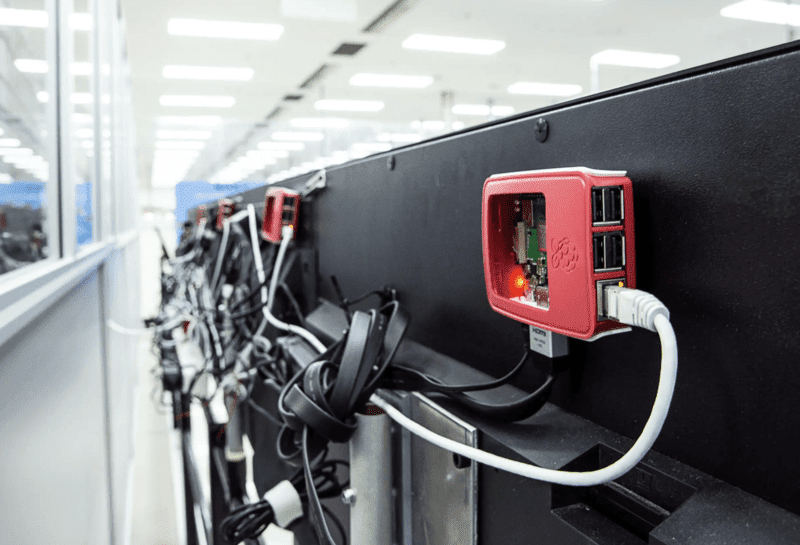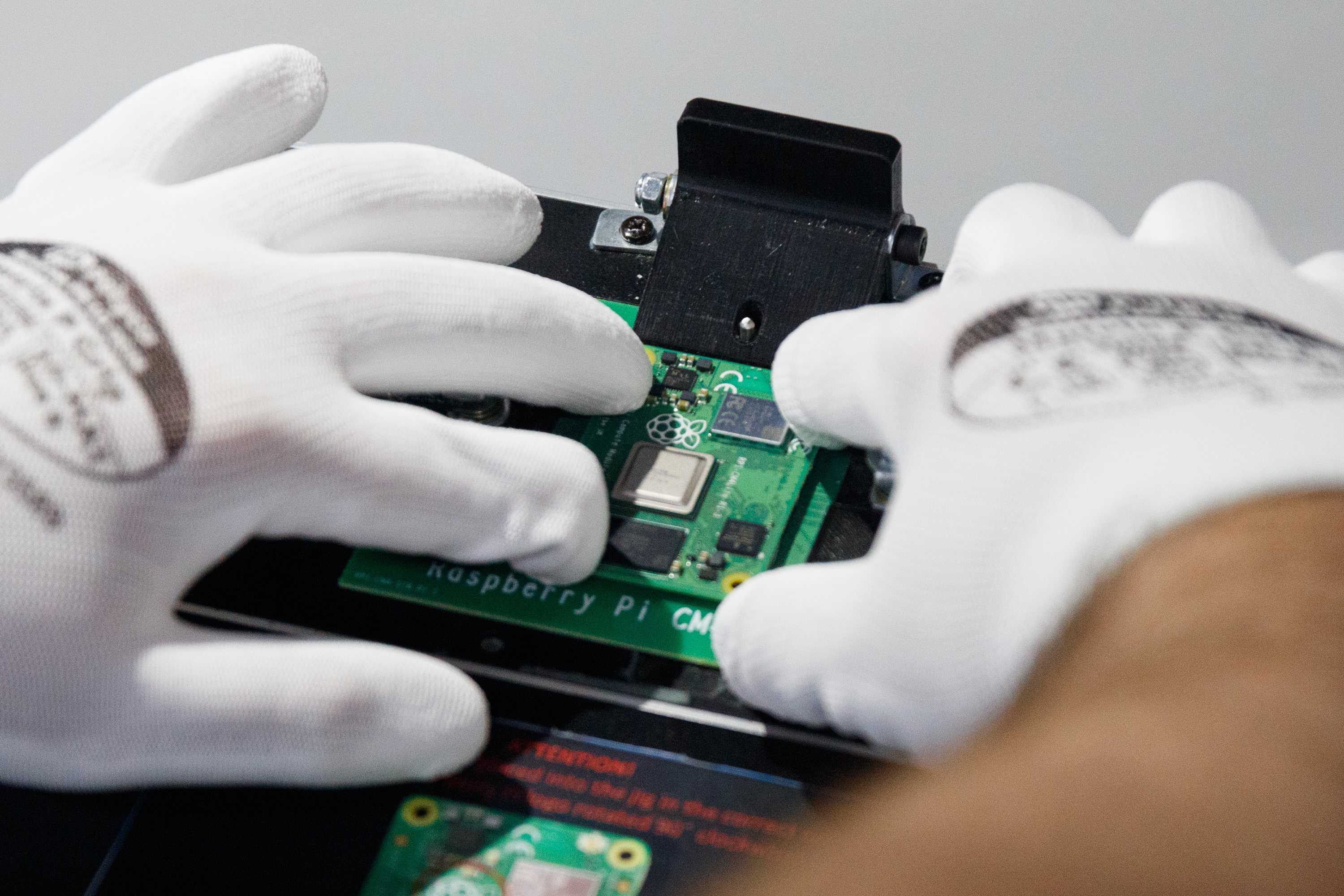Your shopping cart is empty!

Raspberry Pi vs. Thin Client: Key Reasons and Benefits
- Nuttanon Wuttirottaworn
- 15 Apr 2025
- Protip
- 903

In an era of advancing technology and increasing demand for flexibility, Thin Clients have become a popular solution for organizations seeking cost-effective and energy-efficient computing systems. This is especially true when combined with the Raspberry Pi, a compact yet powerful computer with versatile applications.
This article explores why Raspberry Pi is an ideal choice for Thin Client systems and the benefits it offers to organizations and general users alike.
Why is Raspberry Pi suitable for Thin Client?

1. Compact, portable and easy to install.
Raspberry Pi is designed to be compact and space-efficient, making it ideal for installation in limited spaces such as small offices, meeting rooms, or even home setups for remote work. Additionally, its portability allows for easy relocation and reinstallation when adjustments are needed.
2. Affordable Pricing and Reduced Hardware Costs.
Raspberry Pi is significantly cheaper than traditional Thin Clients and desktop PCs. Especially for organizations requiring a large number of Thin Clients, Raspberry Pi helps to substantially lower the cost per unit.
3. Energy Efficient and Long-Lasting
Raspberry Pi consumes only 5-15 watts of power, whereas traditional computers can use up to 100 watts or more. This energy efficiency not only lowers monthly electricity costs but also extends the device’s lifespan by reducing heat generation.
4. Supprorts Various Server Connection
Raspberry Pi is compatible with multiple operating systems and protocols suitable for Thin Client applications, such as Raspberry Pi OS, Ubuntu, and ThinLinx. It can also connect to Virtual Desktop Infrastructure (VDI) servers using protocols like Remote Desktop Protocol (RDP), Citrix, and VMware, ensuring seamless integration with existing IT environments.
5. Customizable and Expandable
With its flexibility in both hardware and software, Raspberry Pi can be customized for specific use cases. Users can expand its capabilities by adding extra memory, integrating touchscreens, or connecting wireless modules, making it a versatile solution for various Thin Client applications.
6. Easy System Management and Updates
Setting up and updating Raspberry Pi is straightforward with tools like Ansible, PiNet, or Raspberry Pi Imager. These tools simplify Thin Client maintenance, making system management more efficient for IT administrators.
Benefits of Using Raspberry Pi as a Thin Client

1. Reduced Hardware and Maintainance Costs
Using Raspberry Pi instead of traditional Thin Clients or desktop computers significantly cuts expenses, both in initial investment and long-term costs such as maintenance and hardware replacements.
2. Ideal for the Digital Era and Remote Work
Raspberry Pi supports Virtual Desktop Infrastructure (VDI), allowing users to access virtual desktops from anywhere. It also supports RDP and SSH protocols, making it a great solution for organizations implementing Work from Home setups.
3. High security
Thin Clients offer enhanced security since most data is stored and processed on a central server. Raspberry Pi follows the same approach, reducing the risk of data loss or theft.
4. Easy Development and Management for Large Organization
For organizations requiring a large number of Thin Clients, Raspberry Pi allows centralized configuration and quick deployment with minimal setup, making it ideal for scaling operations.
5. Supports Sustainablility and Reduces Enviromental Impact
With its energy efficiency, Raspberry Pi helps lower electricity consumption in the long run, benefiting the environment. Additionally, unused devices can be repurposed for other applications, promoting sustainability.
6. Ideal for Educational Institutions and Small Business
Beyond large organizations, Raspberry Pi is also a great option for educational institutions, enabling learning and working on a Thin Client system within a limited budget.
Examples of Real-World Applications of Raspberry Pi in a Thin Client System
Office Use: Many organizations use Raspberry Pi as a Thin Client to connect to a central server, helping reduce hardware costs and simplify the management of individual machines.
Education: Educational institutions can use Raspberry Pi to connect to servers for computer labs, helping save costs while supporting learning with technology.
Kiosk or POS Systems: Raspberry Pi can also be used as a Thin Client for specialized applications like Kiosk systems or Point of Sale (POS) systems in retail environments.
Conclusion
Using Raspberry Pi as a Thin Client is a cost-effective and suitable choice in today's world. With its versatile capabilities, energy efficiency, and low cost, Raspberry Pi not only helps organizations reduce expenses but also enhances operational efficiency and supports long-term sustainability. If you're looking for an affordable solution, Raspberry Pi is truly the ideal option for Thin Client systems.
 International
International Singapore
Singapore Malaysia
Malaysia Thailand
Thailand Vietnam
Vietnam